Hydrogen Fuel Technology – Best 3 Trucks in Hydrogen Fuel Segment
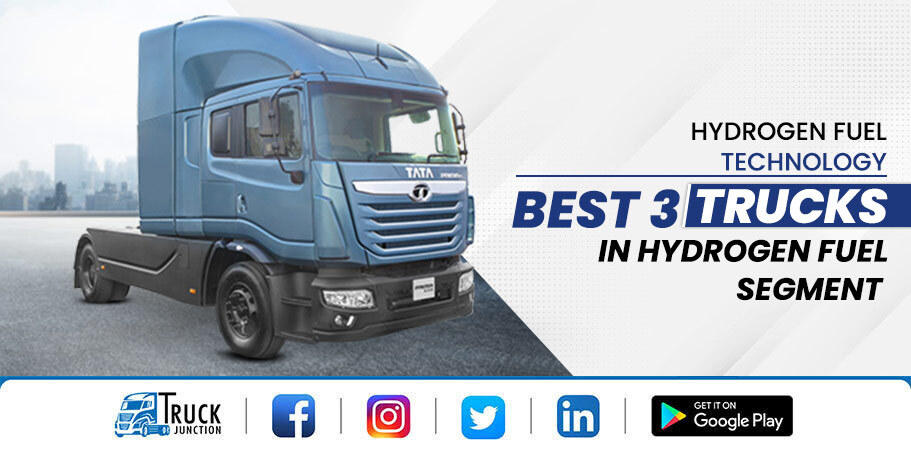
The theory of fuel cells and using Hydrogen fuel as a power source are not uncommon. However, the advancement of hydrogen fuel cell technology suitable for application in transportation systems and infrastructure is expanding. Still, it will take several years before it becomes widely viable. Nevertheless, fuel cells for commercial vehicles and equipment can become critical to the future of transport and infrastructure. Therefore, the leading automobile companies are actively working to speed up the innovation, manufacturing, and implementation of hydrogen fuel cell technologies.
The industry giants, notably the BMW group, rely on the concept and see it as the solution. Toyota additionally sees Hydrogen as a viable replacement for conventional integrated engine vehicles in heating, lighting, haulage, public transportation, and heavy industry. Given the multiple governmental and private sector activities promoting hydrogen mobility, there seems to be enormous development potential for fuel cell trucks globally.
Let us now take you through the Best 3 Trucks in the Hydrogen Fuel Segment.
What is Hydrogen Fuel Cell Technology in India?
Automobiles powered by hydrogen fuel cells are nearly identical to electric vehicles. Rather than using an internal combustion engine, both employ an electric motor for mobility. However, the commonalities cease since an EV requires an external power source to replenish its battery. On the other hand, hydrogen fuel cell trucks in India can create electricity aboard using a fuel cell.
You may be wondering where the Hydrogen in the automobile is stored. Like gasoline or diesel, Hydrogen can be refuelled and retained in the vehicle’s pressurized tank. The fuel cell in the automobile uses Hydrogen to generate electricity to operate the electric motor.
A hydrogen vehicle additionally has an internal battery to retain the electricity generated by the fuel cell. Generally, the fuel cell drives the motor straightforwardly. However, the battery’s electricity is used whenever there is a greater need for power.
Know About the Cost of Hydrogen Fuel in India
The hydrogen fuel price will always be a consideration when it pertains to fuel. Price will play an important role in the decision-making phase, whether utilized to operate a utility vehicle or gives power to an industrial plant.
Unlike other fuels, Hydrogen is quantified in kilograms rather than litres or gallons. Hydrogen usually comes in kilowatt-hours. It can produce electricity for residential businesses and industrial purposes (kW).
- In India, the estimated cost of hydrogen fuel ranges around 320 and 330 rupees per kilogramme.
- In the United Kingdom, hydrogen fuel typically costs around £10 and £15 per kilogramme.
- Hydrogen prices are about US$16 per kilogramme in the United States.
Renewable Hydrogen produced by electrolysis now costs approximately US$3 and US$6/kg. But economists predict this amount will fall dramatically over the next decade.
Use of Hydrogen Fuel Cell Technology
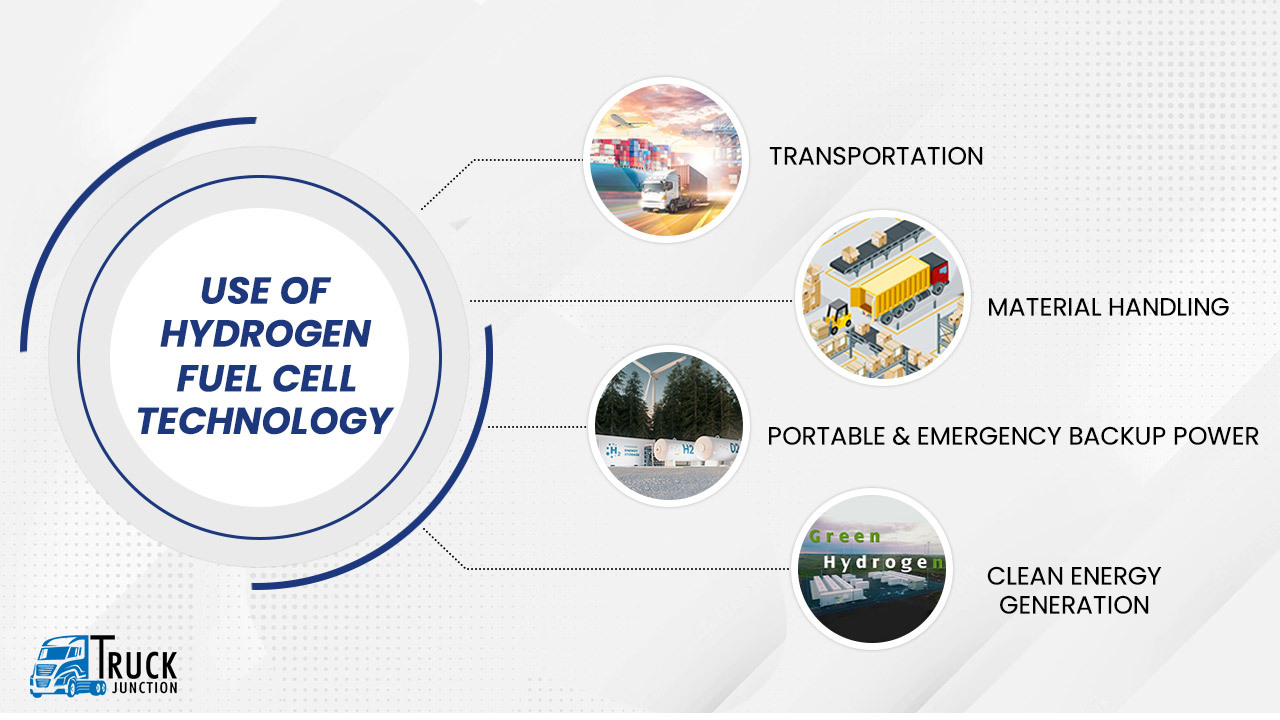
Leveraging hydrogen cell fuel technology remains an environmentally sustainable alternative to conventional fossil fuels. It has the potential to offer flexible and high-density power and propulsion for a broad range of industrial plants and forms of transportation. And these are:
1. Transportation
Fuel cells can be utilized in many automotive applications, including autos, buses, ships, trains, and aeroplanes. In addition, motorcycles, bicycles, and scooters are adopting Hydrogen based fuel technology.
Regardless of the complexities associated with fuel cell autos, fuel cell buses have already been proven useful, and forklift trucks are a significant generator of hydrogen fuel demand. Forklifts are particularly interesting because they frequently perform indoors, where emissions must be monitored.
It implies that electric forklifts are commonly employed. However, fuel cells offer advantages against battery power, including speedier refuelling and no deterioration at low operating temperatures, such as in refrigerated warehouses.
2. Material Handling
Productivity is a crucial determinant of revenue growth in the material handling sector; every performance increase benefits the bottom line. In addition, companies running distribution and manufacturing operations benefited economically and environmentally from the use of hydrogen fuel material handling equipment.
3. Portable & Emergency Backup Power
Stationary fuel cells are utilized in uninterruptible power source (UPS) devices where uninterrupted uptime is important. Hospitals and data centres are turning to Hydrogen for an uninterruptible electricity supply. Microsoft recently gained attention for a successful process of its stronger hydrogen backup generators, which allowed one data centre’s servers to function solely on Hydrogen straight for two days.
4. Clean Energy Generation
Because the byproducts of hydrogen fuel cells are merely heat and water, they are a naturally pure energy source with no negative environmental consequences throughout the operating condition. Hydrogen, except biofuel or hydropower, doesn’t require extensive tracts of land to create.
In reality, NASA has been exploring harnessing Hydrogen as a fuel, with the water produced as a byproduct employed as astronaut drinkable water. In addition, it demonstrates that hydrogen fuel cells are a non-toxic fuel source, making them safer than coal, natural gas, and nuclear power, which are potentially hazardous or difficult to obtain.
Top Hydrogen Trucks 2023 In India With Future Of Hydrogen Fuel
Presently, the nation is racing toward a hydrogen fuel cell technology future that seems to be evolving. However, the actual champion is uncertain. Nevertheless, hydrogen has evolved as a dominant front-runner, providing numerous possibilities for energy, transportation, and consumption production.
Let’s take you through the list of the three most powerful yet productive hydrogen trucks in India.
1. Tata Prima E.55S Trailer
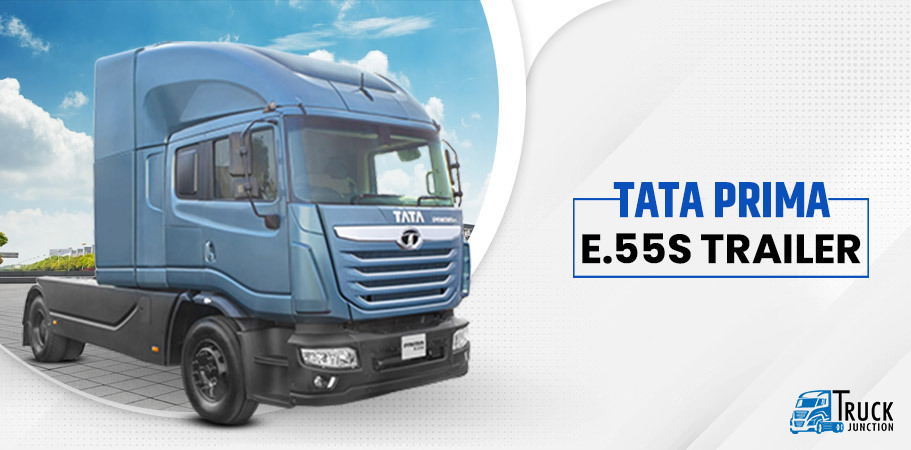
In the face of catastrophic climate change, the globe is shifting toward greener automotive fuel. Tata Motors has made considerable investments in developing hydrogen fuel-based vehicles and is currently at the forefront of producing hydrogen-powered automobiles. The Tata Prima E.55S is an industry-first device that can transport cargo throughout regions and major cities in an environmentally responsible and cost-effective manner.
This three-powerful cylinder Trailer Truck comes with a solid 470kW engine that can produce 300 HorsePower and generate maximum torque of 2500 NM. In addition, the operator can get a range of approximately 350 to 500 Km with less refuelling or charging time of just 20 minutes.
The other main highlights of the Tata Prima E.55S Trailer are:
GVW – 55000 KG
ENGINE NORM – zero CO2
SEATING CAPACITY – Driver Plus Two Passenger
2. Ashok Leyland 4125 HN Truck
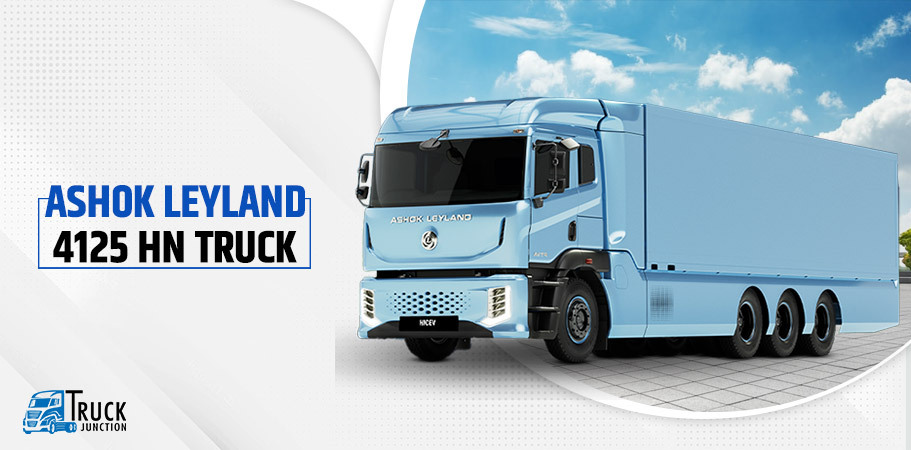
Another future-driven yet feature-rich Hydrogen fuel cell vehicle on the list is Ashok Leyland 4125 HN Truck. It is equipped with As a result, it can effortlessly produce 250 HorsePower and generate better torque allowing you to cover miles. The overall GVW (Gross Vehicle Weight) is 41000 KG, which is the most interesting aspect of this performance-oriented vehicle.
Let’s know about the other important specifications of the Ashok Leyland 4125 HN Truck.
NO OF TYRES – 14
ENGINE CYLINDERS – 6
SEATING CAPACITY – DRIVER PLUS TWO PASSENGERS
3. Tata Prima H.55S Truck
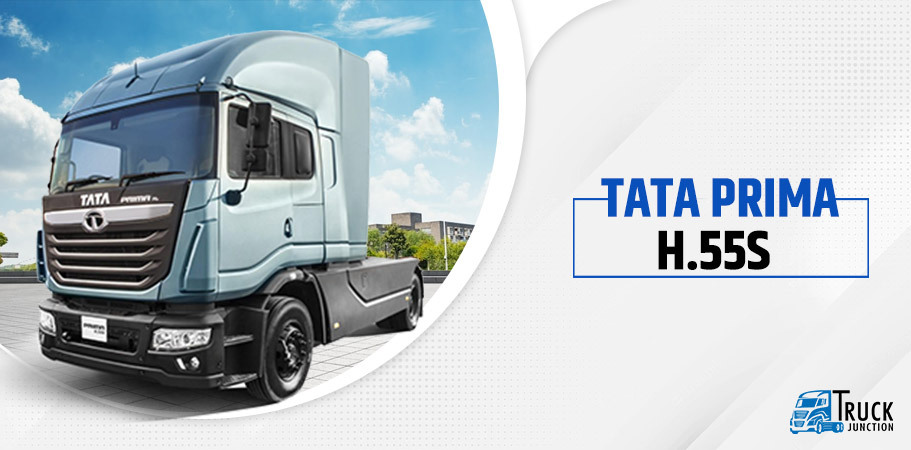
Tata Prima H.55S Truck is Tata’s first and foremost hydrogen fuel vehicle. The Tata Prima H.55S has a powerful Cummins B6.7L H – BS6 engine using innovative technology. This model produces 290 Horsepower and generates maximum torque of 1200 NM.
Along with this, you can get a payload capacity of 38000 KG, allowing you to carry cargo swiftly, even in difficult or rough terrain.
The other technical details of the Tata Prima H.55S Truck are as follows:
NO OF TYRES – 6
MILEAGE – 350-500 km per filling
GVW – 55000 KG
Thoughts Before Closing
It is now crystal clear that the future of hydrogen fuel technology is brighter than ever. In this age and cutting-edge competitive zero-emission automotive market, the major hydrogen technology companies or giants are racing towards producing hydrogen-based passenger or commercial vehicles.
As the production and development of hydrogen trucks in India are speeding up, we can expect more promising hydrogen fuel cell vehicles that can accelerate towards accomplishing the “GREEN” hydrogen mission.
Related Blog –
Bi-Fuel Commercial Vehicles, The New Option For Diesel Engines
Future of The Electric Vehicles in India with Detailed Insights



